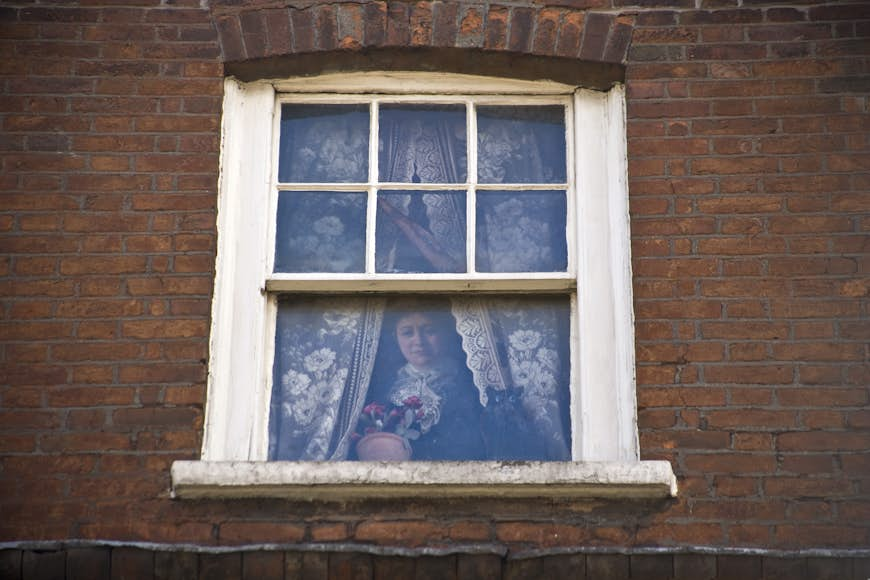London-based writer Séamas O’Reilly explains why he thinks travelers should skip the landmark Buckingham Palace and instead immerse themselves in one of the city’s most eccentric homes.
It’s sometimes hard to be a tourist in your own city, but the best thing you can say about London is that it makes this easy by basically being 12 cities stapled together.
The sheer variety of things on offer can prove daunting — even to those who have accumulated some degree of local knowledge. More daunting still when your main impetus to get out and see the city tends to be when friends and family are visiting. They’ll usually want to see the things they’ve seen on TV and movies, landmarks so ubiquitous they make it on to tea towels and fridge magnets, and have been blown up several times in action films.
At such times, I’m apt to recommend they skip the headline acts and go a little further down the bill, digging a little deeper to see what this ancient city has to offer.
What to skip
In all my years of living in London, the number one attraction visitors have requested is Buckingham Palace. This is unsurprising since it is, arguably, the most famous house in the world.
With the passing of the late Queen Elizabeth II, it may also be tempting to see the palace that served as the seat of her reign for the past 70 years: the grandeur of its columns, the quiet exactitude of its gardens, the pomp and ceremony of her changing guards.
Unfortunately, for as long as tourism has existed, everyone on Earth has had the same idea. Which means that trips to Buckingham Palace can sometimes be a bit crowded and leave you with the exact same memories and photos as around 34% of the planet’s population.
On top of that, the palace itself is only open for visits from the end of July until the start of October so, for most of the year, you’ll have to make your best guess of how the Queen lived from a distance of a few hundred meters.
What you should do instead
If you want to see inside an incredible English home, there’s one I recommend above all others. Dennis Severs’ House never housed a Queen or King, but a variety of unknown people throughout history and, more recently, the eccentric artist who spent his lifetime reviving the history within its walls.
18 Folgate St was an unassuming brown-brick terraced house when Dennis Severs bought it in 1979, and set about a painstaking restoration aimed at reflecting the many eras its former occupants lived through.

Severs conceived of his house not as a historical document but a “still-life drama” which evokes the various periods of its imagined former occupants. Severs invented a family of Huguenot weavers, “living there” from 1725 to 1919, and constructed their lives within the home. It’s a stunning recreation of a living, working home, whose residents have “just this minute left the room”. As a result, walking its creaky floorboards is one of the most beguiling and entrancing experiences that London has to offer, as you take a floor-by-floor tour of the capital across the 18th and 19th centuries.
Moving quietly through the house – you are bidden to be as silent as you can to enhance its effect – you will find a dazzling facsimile of Old London, with each room filled to breaking point with period detail. Pipes and pamphlets and all manner of bric-a-brac crowd every surface and one is assaulted by the sights, smells and sounds of this ordinary world, rendered extraordinary by distance and detail; by the embers in the fire and the bread on the table, by a lunch half-made on the kitchen table or the night clothes strewn across an unmade bed.
Top neighborhoods to explore in London

Quite aside from all its other virtues, you will be struck by the fact Severs carried out these restorations while he was still living here, so devoted to his labors that the unmade bed you passed was indeed his own. Since his death in 1999, the house has been kept in exactly this condition, rendering it a rare double feat of contrivance and restoration, of history and historiography. It is neither an artifact, nor a performance piece, but somehow more than both combined. It is no surprise that David Hockney referred to it not as a museum, but as “one of the world’s five great works of opera”.

A trip to Dennis Severs’ house leaves one enchanted and revived, as the past is made present, the ordinary extraordinary. You may not emerge with any photos – photography, like idle chat, is of course forbidden – but you will have memories to share for the rest of your, or any other, lifetime.
16 things you never knew about London
How to make it happen
Silent visits cost £15 per person, and take place on Saturdays and Sundays, with tickets generally available at the door, but also bookable online.
